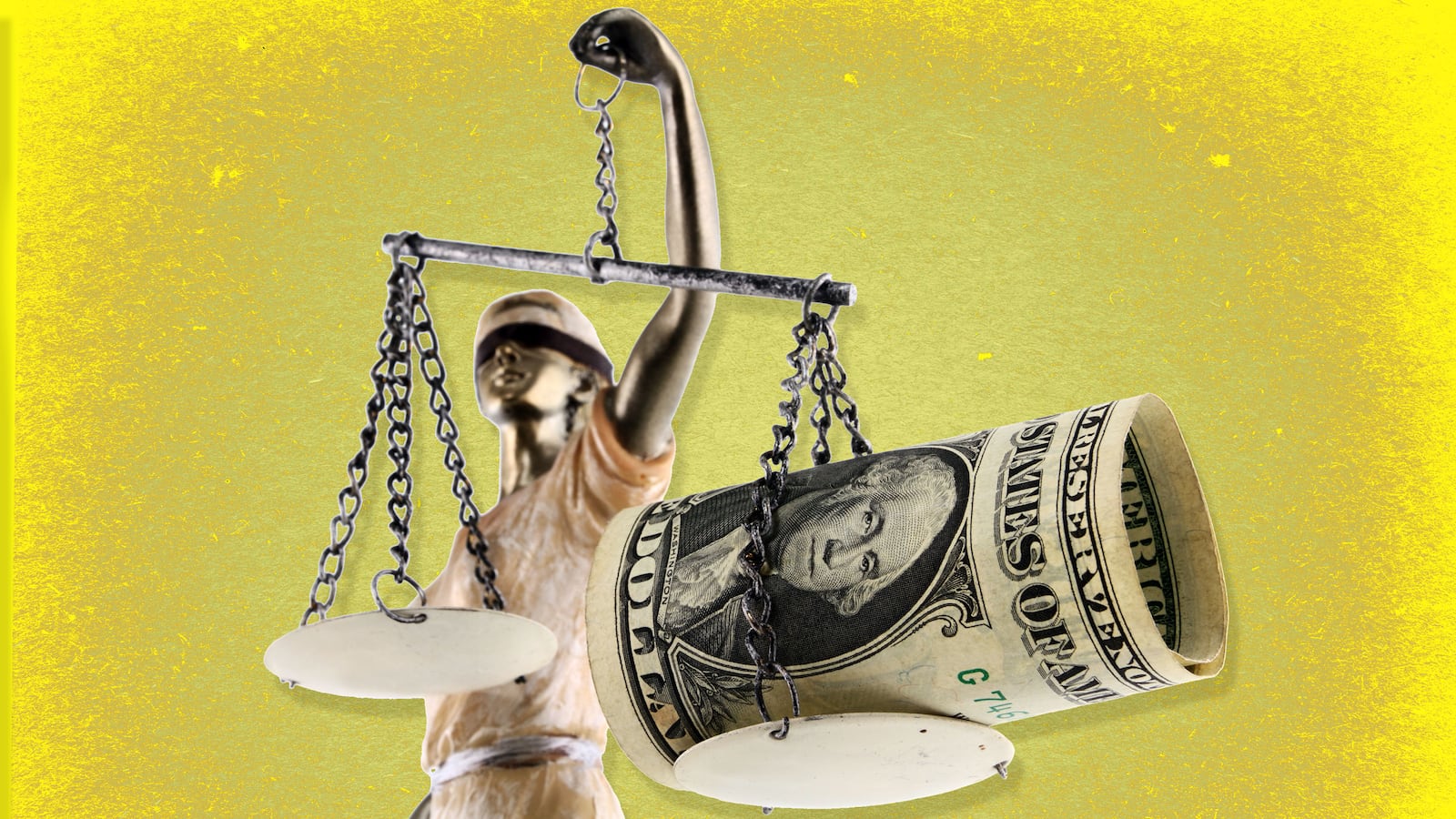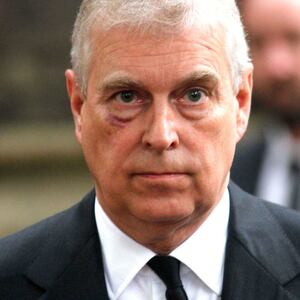It says much about these through-the-looking-glass times that there is a “debate” about whether there should be witnesses at Donald Trump’s impeachment trial. Of course there should. This is a trial. Witnesses tend to feature in trials.
On the same basis, Trump should be involved too, at the very least providing evidence and answering questions (as Bill Clinton did in grand jury testimony in 1998). None of this should be up for debate, or controversial, or dependent on any party representatives’ votes.
The impeachment trial is maddening for any number of reasons, but mostly because it is very visibly not being conducted in the manner of any trial we would recognize. It is simply another familiar circus of D.C. grandstanding and grizzling.
This is what having power, money, and influence really means, beyond the big houses, servants, cosseted protection, and gilded grandeur of it all. Apparently, it also protects you from having to answer the kinds of questions from those in authority that those without money and privilege are routinely expected to answer—as the varied but echoing examples of Prince Andrew, President Trump, and Anne Sacoolas show us.
From all three, we can deduce that money or different kinds of power put you above the mechanics of justice. It means you may not get a uniformed knock at the door. You may not be questioned. You may not be arrested. You may not be hand-cuffed. There may be no perp walk. You may resist arrest and avoid answering an official inquiry—because, quite simply, nobody can get near you to arrest you or ask you anything.
Past buying you the best defense, money, power or both can insulate you from having any contact with the pesky law at all, even when there are profound questions over your own conduct and behavior, and knowledge of—and alleged participation—in particular events. Money and power mean you can choose the terms of how authorities interact with you.
You can, in effect, loftily ignore the law.
Prince Andrew, U.S. authorities have said, has not responded to any requests to answer questions about his alleged sexual encounter with Virginia Roberts Giuffre, and his relationship with Jeffrey Epstein. (Prince Andrew denied this Tuesday night.)
The prince has offered “zero co-operation,” U.S. Attorney Geoffrey Berman said Monday—this after Andrew had told BBC’s Newsnight that he was “willing to help any appropriate law enforcement agency.” He also said he would consider giving evidence under oath “if push came to shove and the legal advice was to do so.”
Well, if one believes American prosecutors, for the last two months, from Andrew and Buckingham Palace, there has been the ultimate rich person’s power play: silence. It is a silence that speaks volumes of Andrew’s arrogance and disinterested detachment—visible in that appearance of his on BBC Newsnight interview last year—from the experiences of those whom Epstein allegedly abused.
Even if his legal team has recommended Andrew keep shtum (given that when he did answer the BBC’s questions, it was an unmitigated disaster), what of his own stated commitment to help the authorities? What about the moral imperative of helping authorities investigate Epstein’s activities?
President Trump is tweeting prodigiously, and giving off-the-cuff quotes at press conferences, but he is not—yet anyway—answering any questions at his impeachment trial.
However you feel about this trial—and whatever your views about Trump—there is the central bemusing fact that an impeachment trial is taking place, where the person at the center of it and the witnesses to his alleged behavior, aided by their prime political supporters, somehow have used their power to keep him from being held to the most basic of accounts. (That may change if Senate Majority Leader Mitch McConnell loses a few members' votes, as he warned he might in a private caucus conference Tuesday. Or, of course, when Trump is no longer president.)
What is the point of a “trial” where certain evidence, including the testimony of the accused and witnesses, is not aired, and open to cross-examination?
This trial, so far, is an absurdist mockery of justice. Republicans should not be able to vote on whether witnesses should be called. This shouldn’t be party-political. Witnesses, and the accused, should simply be duty-bound to answer questions as in any trial. How can we judge the burden of proof without the full breadth of evidence?
With so much lacking, we should not call this a trial. This is the very opposite of checks and balances. It is a flagrant abuse of power, and an offensive waste of time, on our dime.
Then there is Anne Sacoolas, the wife of a U.S. diplomat charged with causing the death of 19-year-old Harry Dunn through reckless driving in Britain last summer. U.K. Foreign Secretary Dominic Raab is said to be “incandescent with rage” that Sacoolas is not being extradited to Britain on the disputed grounds of diplomatic immunity.
Raab will meet U.S. Secretary of State Mike Pompeo on Wednesday and we will see if this “rage” actually translates to action—and whether the person who allegedly caused Dunn’s death will ever face any questioning or undergo the judicial process in Britain about the incident.
In all three cases, the basic workings of law and due process have failed when set against the power and privilege of Andrew, Trump, and Sacoolas. They have made themselves fundamentally unavailable to the relevant authorities.
If they were ordinary people, you or me, presumably the investigating authority would not accept us simply declining their presence. They would not accept our, “You know what, guys? Not today. I’m not in the mood.” We would be asked questions, and any resistance and failure to address these questions would have consequences.
Why do President Trump, the witnesses to President Trump’s alleged behavior, Prince Andrew, and Anne Sacoolas not give themselves over to the people who want to ask them things—with every legal representation available to them that they choose to have?
There are very individual answers to this known only to each of them, but one linking factor may be fear—fear of what being questioned, or telling the truth, or being forced to tell the truth, will mean for their personal freedom, their standing, their status, and the effects of the process on the families and institutions they are a part of.
Well, sure. But diddums, powerful people. Regular humans do not have this luxury. Regular humans have to face the music. It is why ordinary people try, by and large, to avoid doing illegal or bad things. It is why, perhaps, that the very rich and powerful feel free to behave egregiously. They know how the system will inevitably benefit them, even when the law or authorities seek their arraignment or engagement.
“Executive privilege,” “diplomatic immunity”: such phrases have meaning but can also become convenient muffling cloths, a rich person’s make-nice, a regal wave of the hand in legal-ese to keep the annoying questions of the hoi-polloi, the authorities (sniff) away.
They—the endless legal teams and assistants and advisers and gatekeepers; all paid-up obstructionists to justice—keep the rich cushioned as they evade, stay silent, and maybe worse. It means that the letter of the law—that we all must live with and live under—is perceived by the powerful as just another annoying trifle that they needn’t concern themselves with.
They are not simply buying themselves out of trouble with fancy lawyers; they are presently able to resist the process of justice itself. The law, and where investigators can reach and what and who they can access, must change to make the powerful as answerable as the rest of us. When questionable justice, lacking justice—if not outright injustice—occurs in plain sight, where does that leave our own relationship to the law and due process?
To be clear: Prince Andrew should talk to the Feds, Donald Trump and witnesses should give evidence to the impeachment inquiry, and Anne Sacoolas should face the correct legal process. These should be givens. There should be no debate. They are the right things, legally and morally, to do. All three people can argue their cases or points of view robustly, but they should not have the freedom to actively avoid participation in the cases themselves.
If it is true, as has often been invoked on television in recent days, that “no one is above the law,” then let us see that. Or it is time to be honest that certain people are indeed above the law, and then insert some very depressing asterisks and opt-out clauses in our most fundamental laws.






